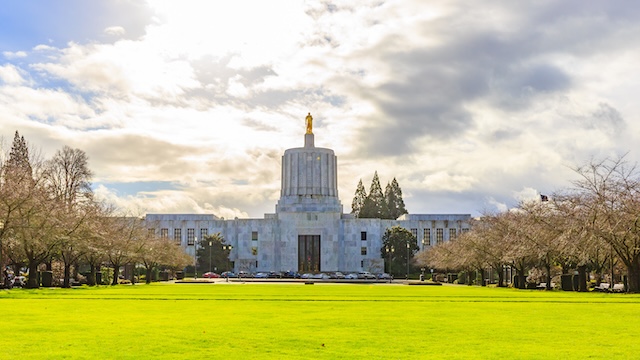Guest Column: Lobbying group blocked Oregon wildlife bill
Published 7:46 am Tuesday, July 15, 2025

- River otters at Think Wild wildlife rescue in Bend. (Bulletin file)
In a legislative session marked by broad bipartisan cooperation, House Bill 2977 —known as the “1% for wildlife” bill — gained overwhelming support in the Oregon House of Representatives. Backed by a coalition of Republicans, Democrats, conservation groups and rural landowners, the bill aimed to raise Oregon’s state lodging tax from 1.5% to 2.75%, generating an estimated $27 million annually for wildlife conservation, road safety, law enforcement, and rural communities.
But despite its popularity, the bill never made it to a vote in the Senate.
The Oregon Restaurant and Lodging Association (ORLA) emerged as a central opponent of the legislation, organizing an intense lobbying effort that ultimately blocked its passage. While proponents saw the bill as a modest and long-overdue investment in Oregon’s natural heritage and public safety, ORLA framed the lodging tax increase as a threat to the tourism industry.
Trending
The consequences of this blocked bill were wide-reaching:
• Wildlife-vehicle collisions: Oregon ranks last among western states in wildlife crossing infrastructure. Each year, approximately 6,000 deer are killed in vehicle collisions across the state, many of which also result in serious vehicle damage or loss of human life. The bill would have funded additional wildlife crossings to prevent these tragic incidents.
• Anti-poaching enforcement: Oregon State Police are chronically underfunded in their efforts to investigate and prosecute wildlife poaching. HB 2977 would have provided targeted funding for enforcement and added legal staff at the Department of Justice to prosecute offenders.
• Wolf compensation for ranchers: The bill included provisions to reimburse livestock producers for animals lost to wolf predation — a longstanding issue for Oregon’s ranching communities.
• Wildlife rehabilitation: Central Oregon’s Think Wild facility, which rescues and rehabilitates injured animals and birds, would have been eligible to receive operational support through the bill, among other wildlife rehab centers.
• Youth and habitat restoration: The Oregon Conservation and Recreation Fund — known for funding urban youth outdoor education, habitat restoration, and beaver reintroduction efforts — would have gained substantial new resources.
• Invasive species control: Critical funding was also designated for managing noxious weeds and invasive species such as cheatgrass, which threaten Oregon’s rangelands and native ecosystems.
Despite the broad scope and support, ORLA did not back the bill. Their opposition intensified after HB 2977 passed the House with a strong 36–15 bipartisan vote and was scheduled for a public hearing in the Senate. ORLA’s executive director testified against the bill, citing concerns that a 1.25% increase would dissuade tourism. However, the testimony omitted a key fact: Oregon’s combined lodging and sales tax rate is currently the lowest in the nation and would still be the lowest even after the increase.
Moreover, data shows that approximately 65% of lodging taxes in Oregon are paid by non-residents — visitors who travel to Oregon specifically to enjoy its scenic landscapes, fish and wildlife, and outdoor recreation opportunities. HB 2977 proposed that a small portion of that revenue be reinvested in the very resources that attract tourists in the first place.
In a last-minute procedural move, two Senators filed a minority report to stall the bill in committee. With fewer than five days left in the session, the tactic effectively killed the bill before it could reach the Senate floor for a vote.
Supporters of the bill included more than 50 organizations, ranging from hunting and angling associations to environmental groups and rural community representatives. Many are now left frustrated — not just by the outcome, but by the way in which the bill was derailed.
Trending
The 1% for Wildlife proposal wasn’t a partisan wedge. It was a strategic, shared investment in Oregon’s future — a modest increase to the lowest-in-the-nation lodging tax, meant to protect the wildlife, wildlands, and public safety that make this state so exceptional.
Whether a similar bill will return in the next session remains to be seen. But the message is clear: meaningful conservation funding in Oregon continues to face uphill battles — even when nearly everyone agrees it’s the right thing to do.
Jeremy Austin is wild lands and water program director for Central Oregon LandWatch. Amy Patrick is policy director for the Oregon Hunters Association.








